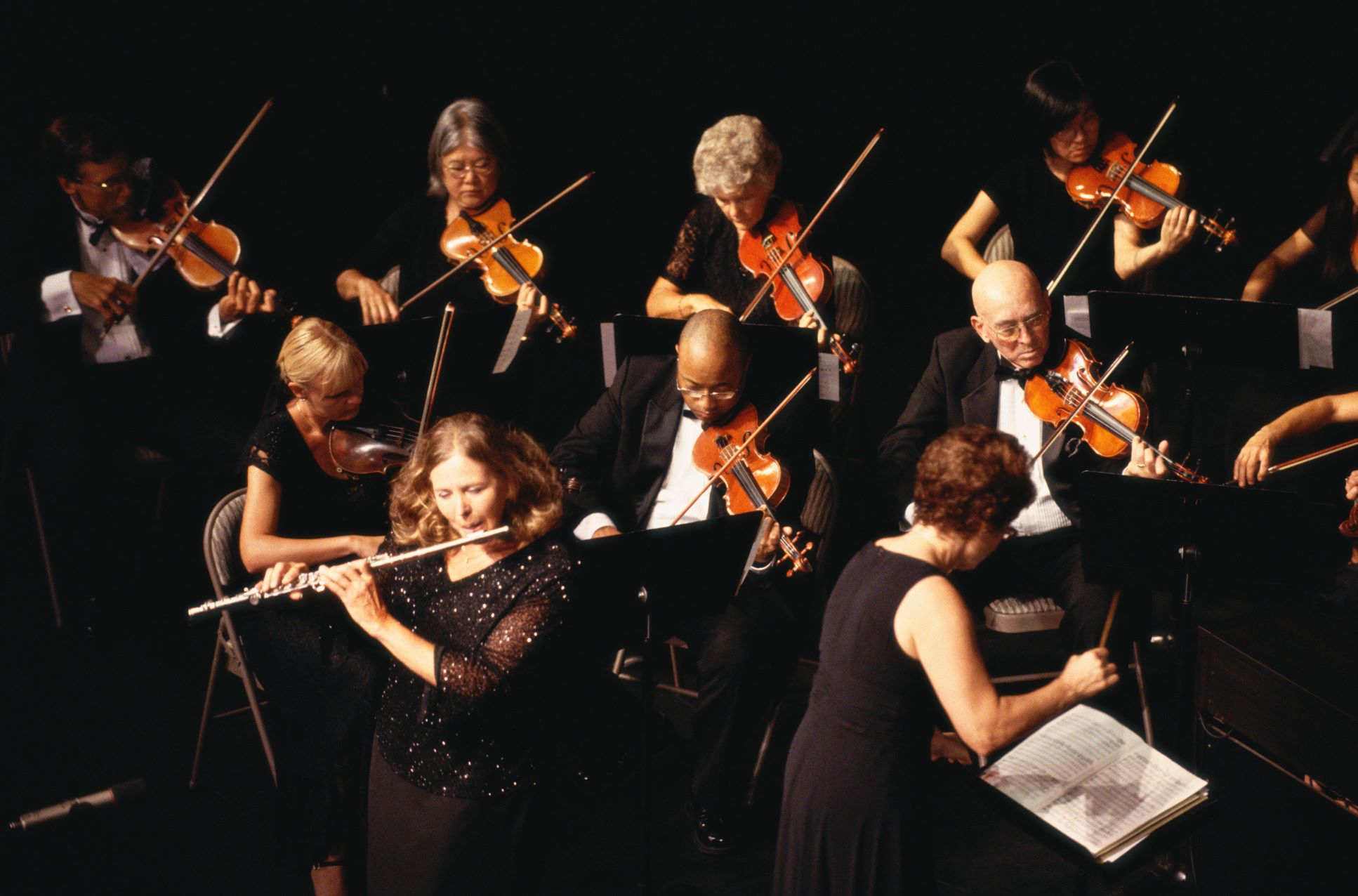Home>Production & Technology>Musician>How Much Do You Pay A Musician For A Ceremony


Musician
How Much Do You Pay A Musician For A Ceremony
Published: January 27, 2024
Find out how much you should pay a musician for a ceremony and ensure you get the best value for your money. Discover what factors to consider when hiring a musician.
(Many of the links in this article redirect to a specific reviewed product. Your purchase of these products through affiliate links helps to generate commission for AudioLover.com, at no extra cost. Learn more)
Table of Contents
Introduction
Music has always been an integral part of human culture and celebration. From weddings to religious ceremonies and special events, music adds a touch of elegance, emotion, and joy to any occasion. When it comes to hiring a musician for a ceremony, whether it’s a small intimate gathering or a grand extravaganza, many factors come into play, including the type of musician, the duration of the performance, and the level of expertise required.
In this article, we delve into the world of musician fees for ceremonies, exploring the various factors that influence the cost and addressing the different types of musicians commonly hired for these events. We’ll provide you with valuable insights on negotiating fees, budgeting, and ensuring that you find the perfect musician to set the right tone for your ceremony.
So, if you’ve ever wondered how much it costs to hire a musician for a ceremony, you’ve come to the right place. Let’s dive in and discover the fascinating world of musician fees for ceremonies!
Factors that Influence Musician Fees
When it comes to determining musician fees for a ceremony, several factors come into play that can significantly influence the cost. Understanding these factors can help you better navigate the pricing landscape and make informed decisions. Here are some key factors to consider:
- Type of Musician: The type of musician you choose will have a significant impact on the cost. Solo performers, such as pianists or guitarists, may charge less than a full band or an ensemble. Additionally, musicians who specialize in specific genres or instruments, such as a string quartet or a jazz trio, may have higher fees due to their expertise and demand.
- Experience and Reputation: The experience and reputation of a musician also play a role in determining their fees. Musicians with years of experience and a solid reputation in the industry may command higher fees due to their level of expertise and the demand for their services.
- Duration of Performance: The length of time a musician is required to perform at the ceremony will affect their fees. Typically, musicians charge per hour or per set. Longer performances will naturally incur higher costs.
- Travel and Accommodation: If the ceremony is located outside of the musician’s usual performing area, additional costs for travel, accommodation, and transportation may be added to the overall fee. These factors should be discussed and negotiated with the musician beforehand to avoid any surprises.
- Equipment and Setup: Depending on the type of musician and the venue, additional costs may be involved for the rental or transportation of musical equipment. This can include amplifiers, speakers, microphones, and other necessary audio equipment. It’s important to clarify with the musician if these costs are included in their fee or if they need to be arranged separately.
These are just a few of the common factors that can influence musician fees for a ceremony. Each musician may have their own unique pricing structure, so it’s essential to discuss all these details upfront and ensure that both parties are clear on the expectations and costs involved.
The Role of the Musician in a Ceremony
A musician plays a vital role in setting the mood and creating a memorable atmosphere during a ceremony. Whether it’s a wedding, a religious ceremony, or a special event, the right music can enhance the overall experience and evoke emotions in both the participants and the attendees. Here are some key roles that a musician fulfills during a ceremony:
- Creating an Ambiance: One of the primary functions of a musician is to set the tone and create an atmosphere that aligns with the theme and nature of the ceremony. Their music can evoke a sense of joy, romance, solemnity, or spirituality depending on the occasion.
- Enhancing Emotional Moments: A skilled musician knows how to enhance emotional moments during a ceremony. Whether it’s playing a romantic ballad during a wedding vow exchange or providing a serene backdrop during a prayer or meditation, the music has the power to heighten the emotions and create a more meaningful experience.
- Providing Entertainment: In addition to setting the mood, musicians also provide entertainment for the guests. They can perform lively and upbeat tunes during cocktail hours or receptions, creating a festive and enjoyable atmosphere for everyone to enjoy.
- Adding a Personal Touch: Hiring a musician allows you to personalize your ceremony. You can select songs that hold special meaning to you and your loved ones, making the experience more intimate and meaningful.
- Guiding the Flow of the Ceremony: Musicians can also help guide the flow of the ceremony. They can provide cues for the entrance of the wedding party, signal transitions between different parts of the ceremony, or perform specific music for significant moments like the first dance or the recessional.
It’s important to discuss your vision and requirements with the musician to ensure that they understand their role and can tailor their performance to your needs. A skilled musician will be able to adapt to the ambiance, interact with the crowd, and create an unforgettable experience for all.
Different Types of Musicians and Their Fees
When it comes to hiring a musician for a ceremony, there is a wide range of options to choose from. The type of musician you select will depend on your personal preferences, the style of the event, and your budget. Here are some commonly hired musicians for ceremonies and an overview of their fees:
- Solo Performers: Solo musicians, such as pianists, guitarists, or violinists, are often a popular choice for intimate ceremonies. Their fees can vary depending on their experience, reputation, and the length of the performance. On average, solo performers may charge anywhere from $200 to $500 per hour.
- Duos and Trios: Duos and trios, like a guitar and vocalist duo or a piano trio, provide a fuller sound and can cover a wider range of genres and musical styles. The fees for duos and trios typically range between $500 and $1000 for a few hours of performance.
- String Quartets: String quartets, consisting of two violins, a viola, and a cello, add elegance and sophistication to any ceremony. They are often hired for formal events, such as weddings or cocktail receptions. Fees for a string quartet can range from $1000 to $3000, depending on the location, duration, and the musicians’ experience.
- Full Bands: If you want to create a lively and energetic atmosphere, hiring a full band may be the way to go. Bands typically include multiple instruments and vocalists, offering a diverse repertoire and engaging performances. The fees for a full band can vary significantly, depending on factors such as the number of performers, the duration of the performance, and their level of fame. On average, bands may charge anywhere from $2000 to $5000 or more for a few hours of performance.
It’s important to keep in mind that these are just average estimates and the actual fees may vary based on individual musicians, regional differences, and other factors. It’s always a good idea to research and reach out to multiple musicians to compare their offerings, negotiate fees, and find the best match for your ceremony.
The Average Cost of Hiring a Musician for a Ceremony
When budgeting for a ceremony, it’s essential to consider the average cost of hiring a musician. Understanding the average fees can help you plan your expenses and ensure you are getting fair pricing for the services you desire. While the actual cost will vary depending on factors such as the type of musician, location, and event duration, here is a general overview of the average costs involved:
- Solo Performers: Solo performers, such as pianists or guitarists, typically charge between $200 and $500 per hour. Depending on your ceremony’s length and the musician’s expertise, you can estimate the cost accordingly. Keep in mind that additional charges may apply if the musician needs to travel to your location.
- Duos and Trios: Duos and trios, with a combination of instruments or vocalists, may charge anywhere from $500 to $1000 for a few hours of performance. The exact fee will depend on the number of performers, the complexity of the music, and any additional services they provide, such as songwriting or arranging a special song for your ceremony.
- String Quartets: String quartets, known for their elegant and classical sound, typically range from $1000 to $3000. These fees cover the services of two violins, a viola, and a cello for several hours. It’s important to consider the musicians’ skill level and reputation when estimating the cost.
- Full Bands: Hiring a full band for a ceremony adds excitement and energy to the event. However, this comes at a higher cost. On average, bands can charge anywhere from $2000 to $5000 or more depending on factors such as the number of band members, the popularity of the band, and any additional services they offer, such as sound equipment or lighting.
It’s important to note that these are average estimates and musicians may have their own pricing structure based on their experience, demand, and other factors. When discussing fees with potential musicians, be transparent about your budget and expectations. Some musicians may be open to negotiation or offer package deals that include additional services at a consolidated price.
Ultimately, the cost of hiring a musician for your ceremony will depend on your specific needs and the quality and experience you desire. It’s recommended to allocate a portion of your budget towards music to ensure you can secure the services of a talented and professional musician who will help create the perfect ambiance for your special event.
Negotiating Fees with Musicians
When it comes to hiring a musician for a ceremony, it’s important to remember that fees are often negotiable. Negotiating can help you find a mutually beneficial arrangement that aligns with your budget and the musician’s expectations. Here are some tips to keep in mind when negotiating fees with musicians:
- Do Your Research: Before entering into negotiations, take the time to research typical fees for musicians in your area and for your desired type of performance. This will give you a realistic baseline for negotiations and help you understand the market rates.
- Be Clear about Your Budget: Communicate your budget upfront with the musician. This helps them understand your financial constraints and may prompt them to offer a modified package or suggest alternative options to better fit your budget.
- Discuss the Details: When negotiating fees, it’s important to discuss all the details and expectations. Consider factors such as the duration of the performance, any additional services you require, and any travel or equipment costs. By having a clear understanding of the scope of work, you can negotiate a fee that encompasses everything you need.
- Consider Off-Peak Dates or Times: If your event is on a non-traditional day or during an off-peak season, you may be able to negotiate a lower price. Musicians may be more flexible with their fees during these times to secure bookings.
- Offer Value in Exchange: Sometimes, musicians may be open to negotiating fees if you can offer them something of value in return. This could include promotional opportunities, referrals, or the chance to perform in front of a desirable audience.
- Be Respectful: Remember, negotiating is a two-way street. Approach the negotiation process with professionalism and respect. Understand that musicians have their own costs to cover and may need to determine their fee based on their own business expenses.
It’s important to note that while negotiating is common in the music industry, it’s crucial to have realistic expectations. Keep in mind that talented and experienced musicians often command higher fees due to their expertise and demand. Ultimately, finding the right balance between your budget and the musician’s fees will ensure both parties are satisfied and create a positive working relationship.
Tips for Budgeting Musician Fees
When planning a ceremony and budgeting for musician fees, it’s important to approach the process with careful consideration. Here are some helpful tips to help you effectively budget for musician fees:
- Set Priorities: Determine the importance of music for your ceremony and allocate a reasonable portion of your overall budget towards musician fees. Consider factors such as the ambiance you want to create and the impact that live music will have on the overall experience.
- Research Average Costs: Research the average costs of hiring musicians in your area and for your specific type of event. This will give you a baseline understanding of the expected fees and help you allocate a realistic amount in your budget.
- Get Multiple Quotes: Don’t settle for the first musician you come across. Reach out to multiple musicians and get quotes from each of them. This will give you a better understanding of the market rates and enable you to compare and negotiate their offers.
- Consider Local Talent: Hiring local musicians can help you save money on travel expenses and accommodation. Additionally, supporting local talent can add a unique and community-oriented touch to your ceremony.
- Be Transparent: When discussing fees with musicians, be upfront about your budget. This will help them understand your limitations and may prompt them to offer a modified package or suggest alternative options that better suit your financial situation.
- Prioritize Key Moments: If your budget is limited, prioritize the key moments in your ceremony that would benefit the most from live music. Whether it’s the processional, recessional, or specific performances during the event, focus your budget on those moments that will have the greatest impact.
- Consider Alternative Options: If the fees for live musicians are beyond your budget, consider alternative options such as hiring a DJ or using pre-recorded music. While it may not provide the same level of live performance, it can still create a suitable ambiance at a lower cost.
Remember, while it’s important to allocate a reasonable budget for musician fees, it’s equally crucial to be flexible and open to negotiation. Communication, research, and careful planning will help you find the right balance between your desired musical experience and your financial constraints.
Conclusion
When it comes to hiring a musician for a ceremony, understanding the factors that influence their fees, the roles they play, and the average costs involved can help you make informed decisions and budget effectively. Remember that the type of musician, their experience, the duration of the performance, and other factors will impact the fees you can expect to pay.
When negotiating with musicians, be transparent about your budget and discuss all the details of the performance to ensure everyone is on the same page. Consider alternative options if the fees are beyond your budget, such as hiring a smaller ensemble, local talent, or exploring other musical alternatives.
In the end, the most important factor to consider is the value that live music brings to your ceremony. It can enhance the ambiance, create memorable moments, and add a personal touch to your special event. By dedicating a portion of your budget towards musician fees, you can create a captivating and unforgettable experience that will be cherished by you and your guests for years to come.
So, whether you choose a solo pianist, a string quartet, or a full band, invest in the magic of live music and watch as your ceremony comes to life with the power of sound and melody.











